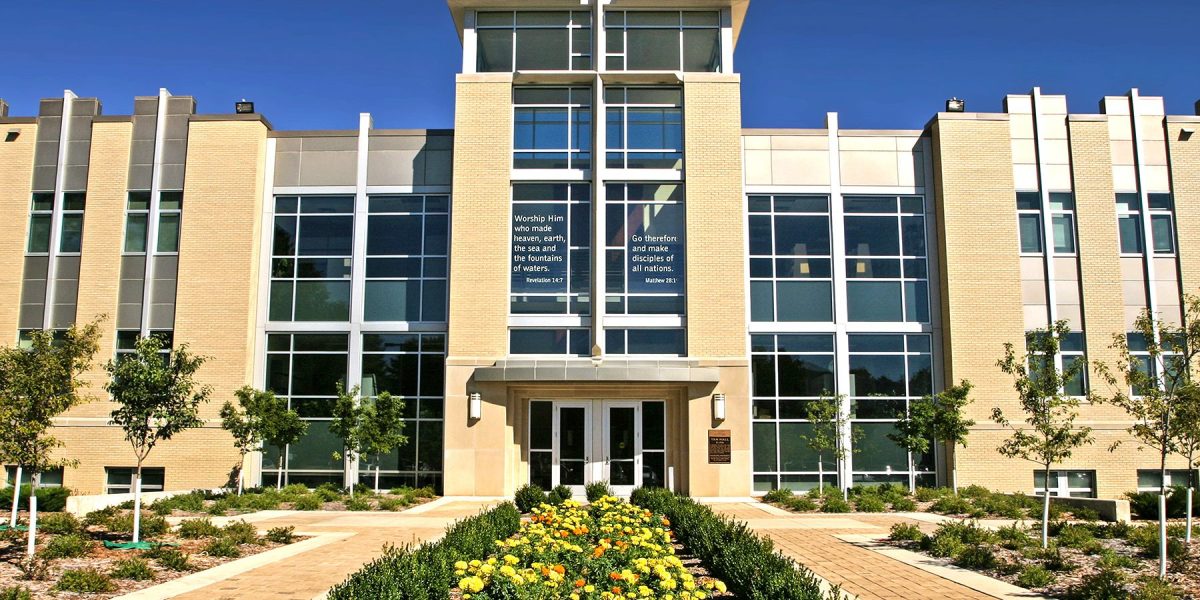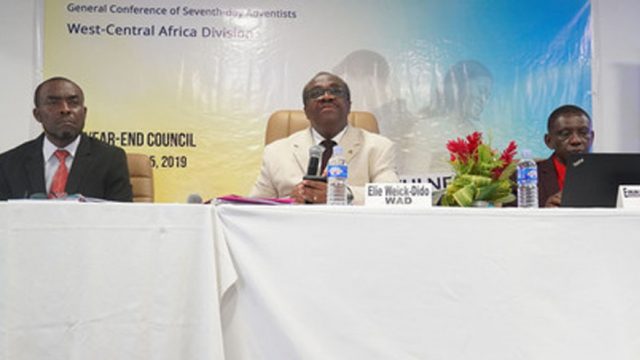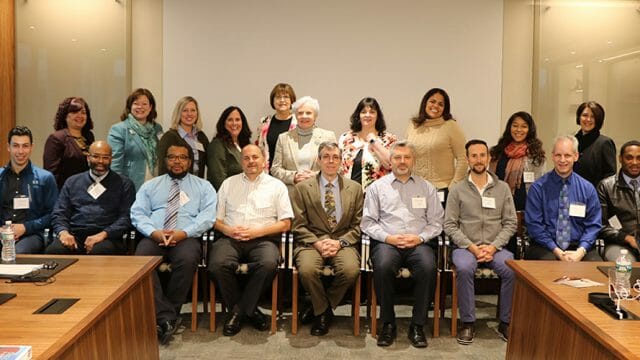Funds will support seminary-driven development of mentoring, initiatives at local level.

Andrews University has received a US$5,000,000 grant from Lilly Endowment Inc. to help the Seventh-day Adventist Theological Seminary establish the Andrews Center for Community Change.
The Center is being funded through the third and final phase of Lilly Endowment’s Pathways for Tomorrow Initiative. The initiative is designed to help theological schools across the United States and Canada as they prioritize and respond to the most pressing challenges they face as they prepare pastoral leaders for Christian congregations both now and into the future.
The Seventh-day Adventist Theological Seminary has supported the Seventh-day Adventist Church with the training, educating, and certifying of pastors since 1937. The Seminary has identified a need to collaborate with churches, health care providers, and other denominational bodies, to develop and expand new strategies for the training of pastors and lay ministers so they can better engage their churches with their communities.
The grant project will establish the Andrews Center for Community Change on the campus of Andrews University will provide individualized mentoring and guidance to pastors and lay ministers to create contextualized innovative solutions that address felt community needs and their root causes. The Center will work with collaborating partners to provide training, mentorship, technical support, and, where applicable, funding to pilot community-level projects.
The training and mentoring will support pastors through the processes of social innovation to help them undertake community needs-based assessments, program design and evaluation, grant writing, project management, and dissemination of findings. The Center will prioritize up to 60 pastors and/or lay leaders each year, with support provided to participants for a period of up to three years. Mentors will be employed to give customized support to pastors and lay leaders with varied academic backgrounds.
The Andrews Center for Community Change will seek to leverage the unique relationship between the Seventh-day Adventist Theological Seminary, the extensive North American Adventist health care network, and local faith-communities throughout North America to expand access to training, project-based learning, and mentoring for Adventist pastors and pastors of other denominations. This collaborative project is undertaken in partnership with Adventist Health, Kettering Health, Adventist Community Services at the North American Division, the InMinistry Center, Versacare, and the Urban Ministry Network. The Center will work with partners to establish an endowment that will contribute to the long-term sustainability of the project.
Andrea Luxton, president of Andrews University, said, “As a University, we are very excited and thankful to be one of the recipients of this grant. It will enable us to further deepen our commitment to both our church and the wider community by developing local pastoral leadership capacity to bring hope, healing, and positive change. We look forward to working with our partners to see the development of many transformational community projects.”
Jiri Moskala, dean of the Seventh-day Adventist Theological Seminary, thanked Lilly Endowment for their support: “This prestigious Lilly Endowment grant we have received will enable the Seminary to strengthen our focus on urban ministry and allow us to expand the support of our pastors and churches in North America through the creation of the Andrews Center for Community Change. We praise the Lord for this enormous opportunity to deepen our usefulness especially for communities with specific needs. I am sure that the combination of spiritual and physical work will prove to be a blessing for many.” The University and the Seminary thank Cedric Vine and Carlisle Sutton for their leadership in developing the project proposal and their commitment to executing this project.
The Seventh-day Adventist Theological Seminary is one of 16 theological schools that have received grants to fund large-scale, highly collaborative programs through the Pathways initiative. Lilly Endowment believes these programs have the potential to become models for other schools as they seek to strengthen the way they educate pastors and other congregational leaders.
“Theological schools play an essential role in ensuring that Christian congregations have a steady stream of well-prepared leaders to guide their ministries,” Christopher L. Coble, the Endowment’s vice president for religion, said. “Many theological schools believe that their paths to the future depend on their abilities to form strategic partnerships with other schools and church agencies. These grants will help seminaries develop innovative and collaborative approaches to theological education that we believe will strengthen their efforts to prepare and support excellent leaders for Christian communities into the future.”
Lilly Endowment launched the Pathways initiative in January 2021 because of its long-standing interest in supporting efforts to enhance and sustain the vitality of Christian congregations by strengthening the leadership capacities of pastors and congregational lay leaders.
Founded in 1874, Andrews University offers more than 160 areas of study, including advanced degrees. Its main campus is in Berrien Springs, Michigan, United States, but the University also provides instruction at colleges and universities in more than 25 countries around the world.
About Lilly Endowment Inc.
Lilly Endowment Inc. is a private philanthropic foundation created in 1937 by J.K. Lilly Sr. and his sons Eli and J.K. Jr. through gifts of stock in their pharmaceutical business, Eli Lilly and Company. While those gifts remain the financial bedrock of the Endowment, the Endowment is a separate entity from the company, with a distinct governing board, staff, and location.
In keeping with the founders’ wishes, the Endowment supports the causes of community development, education, and religion, and maintains a special commitment to its hometown, Indianapolis, and home state, Indiana. The principal aim of the Endowment’s religion grant-making is to deepen and enrich the lives of American Christians, primarily by seeking out and supporting efforts that enhance the vitality of congregations and strengthen the pastoral and lay leadership of Christian communities. The Endowment also seeks to improve public understanding of diverse religious traditions by supporting fair and accurate portrayals of the role religion plays in the United States and around the world.
The original version of this story was posted on Lake Union Herald.








